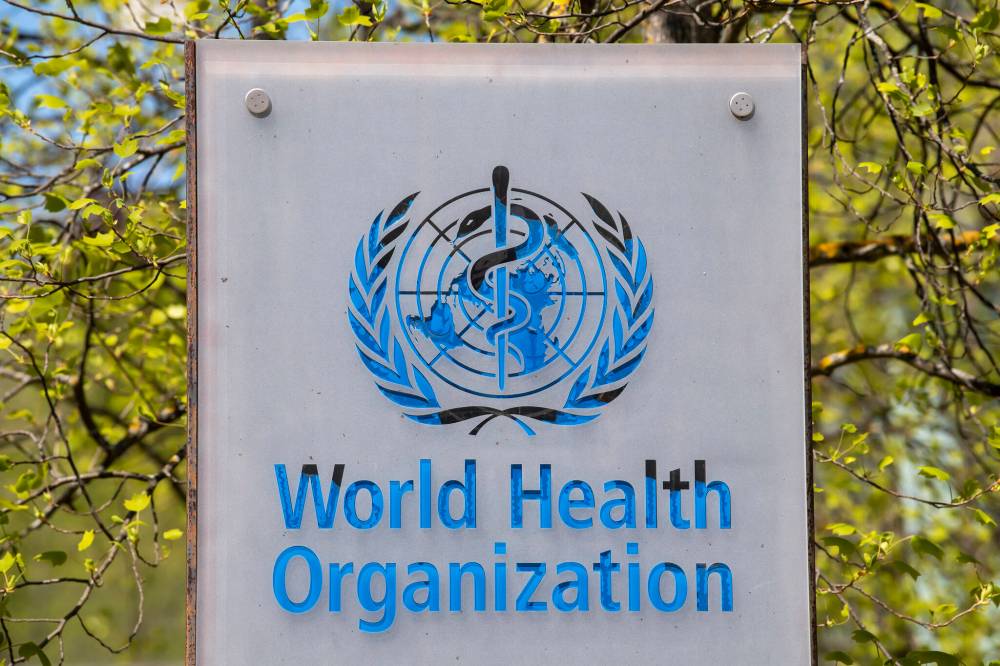Loneliness and conspiracy — two peas in a pod
Advertisement
Read this article for free:
or
Already have an account? Log in here »
To continue reading, please subscribe:
Monthly Digital Subscription
$0 for the first 4 weeks*
- Enjoy unlimited reading on winnipegfreepress.com
- Read the E-Edition, our digital replica newspaper
- Access News Break, our award-winning app
- Play interactive puzzles
*No charge for 4 weeks then price increases to the regular rate of $19.00 plus GST every four weeks. Offer available to new and qualified returning subscribers only. Cancel any time.
Monthly Digital Subscription
$4.75/week*
- Enjoy unlimited reading on winnipegfreepress.com
- Read the E-Edition, our digital replica newspaper
- Access News Break, our award-winning app
- Play interactive puzzles
*Billed as $19 plus GST every four weeks. Cancel any time.
To continue reading, please subscribe:
Add Free Press access to your Brandon Sun subscription for only an additional
$1 for the first 4 weeks*
*Your next subscription payment will increase by $1.00 and you will be charged $16.99 plus GST for four weeks. After four weeks, your payment will increase to $23.99 plus GST every four weeks.
Read unlimited articles for free today:
or
Already have an account? Log in here »
Hey there, time traveller!
This article was published 09/12/2023 (695 days ago), so information in it may no longer be current.
People around the world seem to be more lonely than ever before — and it’s turning out to have far-reaching consequences.
The World Health Organization announced in mid-November it sees addressing a worldwide epidemic of loneliness as a global priority. It has set up a Commission on Social Connection which will study ways to deepen people’s community connections over the next few years.
The WHO’s concern is not unwarranted. In the 21st century, our culture is more atomized than ever. From news sources to streaming music, everyone has found themselves in an echo chamber of their own design, however unwittingly they may have designed it.

The World Health Organization sees addressing the loneliness epidemic as a global priority.
But more than that, social isolation and exclusion has a nefarious social side effect: increased susceptibility to extremism and conspiracy theory.
Also this week, Pollster Leger released the results of a survey of 1,529 Canadian adults and 1,011 American adults. While Leger offers the caveat that the poll can’t be given a margin of error because online surveys can’t be seen as truly random samples, the results are informative.
Five per cent of Canadians surveyed said they believe the Earth is flat. Eleven per cent said they believe the moon landings were faked. Of a list of conspiracy theories —ranging from the belief that John F. Kennedy’s assassination was a coverup, to believing scientists are withholding a cure for cancer — 79 per cent of Canadians and 84 per cent of Americans believed in at least one.
Of course, you might not want to take our word for that — the most popular conspiracy theory among respondents in both countries is that the mainstream media manipulates the information it disseminates.
This tendency to believe in conspiracy theories is not distinct from our increased atomization and loneliness.
Eventually, those who feel rejected, disenfranchised, and frustrated by the state of their life will seek out answers.
When that search begins, the lonely can end up in the clutches of myriad predatory figures who seek to radicalize them or take advantage of their easily-won trust. And once that trust is won, it’s hard to lose — people who seek community and find one tend to be loyal to it.
That’s borne out in a study published in the Journal of Social Issues in May, 2021. Using the Jan. 6, 2021 insurrection at the U.S. Capitol as its jumping-off point, the study looked at the link between social exclusion and radicalism.
“Research from multiple laboratories demonstrated that experimentally induced exclusion elicited extreme reactions that resemble a component of radicalism: a willingness to fight-and-die for a group or ideology,” the study states. It later added “ostracized individuals indicated greater openness toward membership in a gang that engaged in delinquent acts.”
And to connect the last dot, A March, 2017 issue of the Journal of Experimental Social Psychology drew a link between ostracism and an enhancement in superstition and belief in conspiracies.
It all spells bad news for the future. While in the past some conspiracy theories may have seemed quaint (what harm does it really do to think Stanley Kubrick directed the moon landing?), today’s conspiracy theories — QAnon, for example — have political upheaval as their chief fantasy. Conspiracy theories surrounding vaccination compromise our collective ability to respond to health crises.
The WHO is on the right track, as it would appear loneliness is a root cause of this dysfunction.
Create greater community connections between people, reduce loneliness and ostracization.
Build bridges. And hopefully, once the bridges are built, the conspiracy theories and the behaviours inspired by them will fall.







